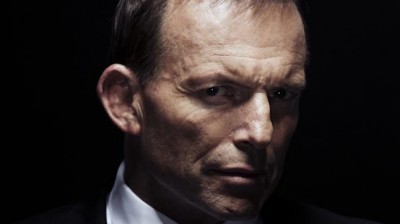Australia: The Fall of Tony Abbott

“This will be a thoroughly Liberal government. It will be a thoroughly Liberal government committed to freedom, the individual and the market.”
-Malcolm Turnbull, Australian Prime Minister, Sep 14, 2015.
You could hear the knives sharpening several continents away. Malcolm Turnbull, former communications minister, and now Australian Prime Minister, engineered a successful ambush of Tony Abbott as the evening newsfeeds started getting busy. When the vote came in, Turnbull had garnered 54 votes to Abbott’s 44.
The question was one of timing. The Coalition had been registering losses in poll after poll. The Abbott style hardly improved after a spill was forced on the party. Despite claiming that he would be ushering in a spring clean, he continued bypassing ministers and MPs. Decisions on the environment and national security were made with a tyrant’s impulse. Extraordinary policy suggestions were aired (a unilateral deployment of Australian forces to Iraq against Islamic State forces being one). Even more conservative members of his party had to urge restraint.
What stood out in the Turnbull message was the care he took in emphasising the economic aspect of the assassination. It was economic management, the supposed preserve of conservative governments, that Abbott was failing in. “We need to have in this country and we will have now, an economic vision, a leadership that explains the great challenges and opportunities that we face.” Opportunities that might have been taken were not. Leadership was lacking.
This then enabled Turnbull to strike out at his opposite number, the Australian Labor Party’s Bill Shorten. How dare he be questioning about a China-Australia Free Trade Agreement, or any other, for that matter? In that sense, Turnbull is doing the old patch-up about free trade treaties that tend to lag in the free department. Australia, inexplicably, tends to be the dogmatist on the diplomatic bloc on the issue of free trade. Never mind that the returns, typified by the Australian-US free trade pact, are poorer for it.
So much in politics rests and falls on the issue of communication. In Turnbull, spit and polish will be employed to cover what essentially will be policies similar to Abbott. Turnbull never truly gave up his advocacy credentials – indeed, as he explained to the press, advocacy, not slogans, was what was needed. Despite such an observation, this has all the makings of a political facelift, a cosmetic reordering. “Good house,” claimed Catherine Deveny, “in a bad street.”[1]
And Turnbull was not averse to doing a bit of sloganeering himself, notably on the subject of organisational culture. “There are few things more important in any organisation than its culture. The culture of our leadership is going to be one that is thoroughly consultative, a traditional, thoroughly traditional cabinet government that ensures that we make decisions in a collaborative manner.”[2]
In other respects, the moderates, who tended to be the mummies of the Liberal set, will be relieved. Some MPs will have a sense that their seats might be retained come the next election. A Turnbull-led offensive from the centre always looked better for the polls than an Abbott kamikaze deployment from the margins. Shorten, and the ALP’s focus-group driven strategists, will be disappointed.
Spare a thought for Abbott. While he knows the nature of the Westminster system, with its inbuilt ability to exclude genuine democratic will regarding leaders, such outcomes do little to promote that model of politics with any confidence. Given the polarising nature of Abbott’s reign, commentary on that subject is bound to be minimal.
Australia’s governing political parties continue to embrace the revolving door of leadership. This, more than anything, suggests how the spin doctor, rather than the citizen, holds sway in the corridors of Canberra. It is the reason why we have seen a profusion of prime ministers who are elected, not by citizens, but by party members and, by default, party pollsters.
Wordsmiths and critics will be similarly stunned by this turn of events. Abbott’s insularity had certain clownish proportions that always made good social media and press copy. His behaviour on behalf of Australia has been hysterically preposterous at stages, though one always had to admire his ideological steel in the face of vacuous opponents in search of an ideology.
At times, such conviction verged on the fanatical, impervious to correction. Even as he was going into the party room for the vote, he remained convinced about victory. But the issue of whether his light is out in this political match is another thing. The pugilist may just be back, if only for a Waterloo.
Dr. Binoy Kampmark was a Commonwealth Scholar at Selwyn College, Cambridge. He lectures at RMIT University, Melbourne. Email: [email protected]

